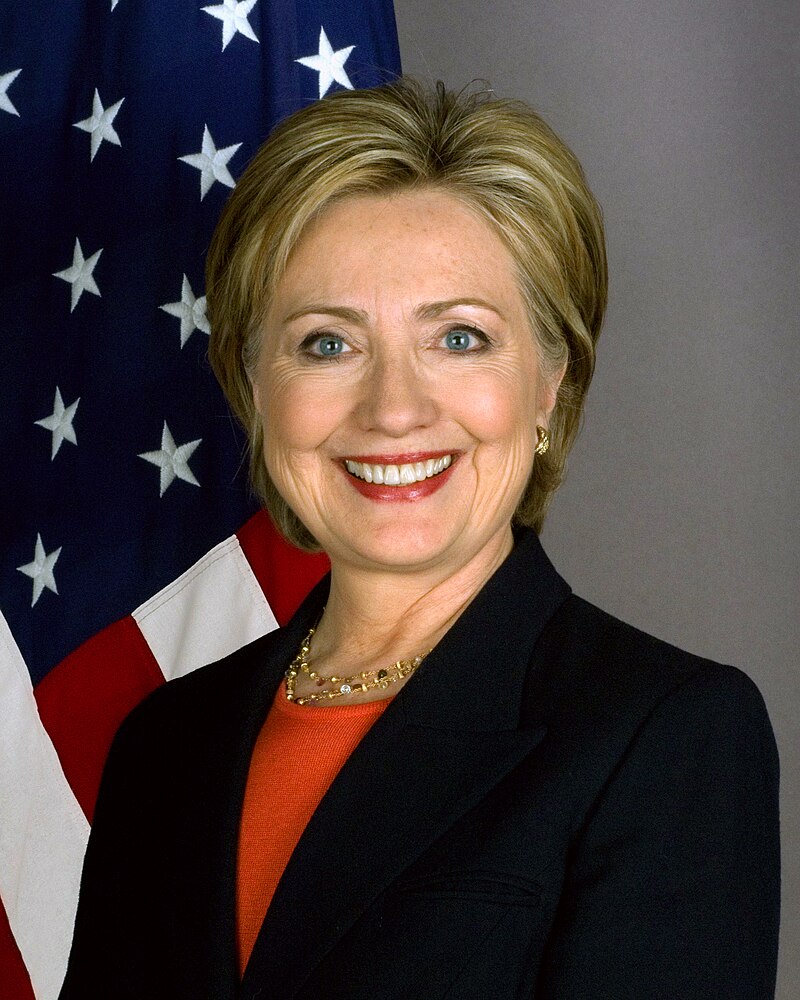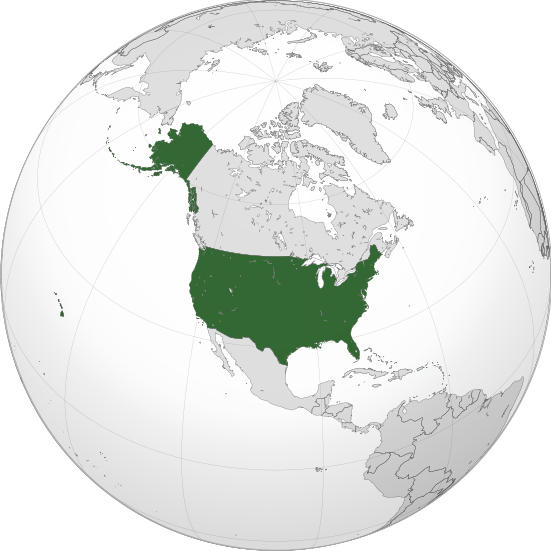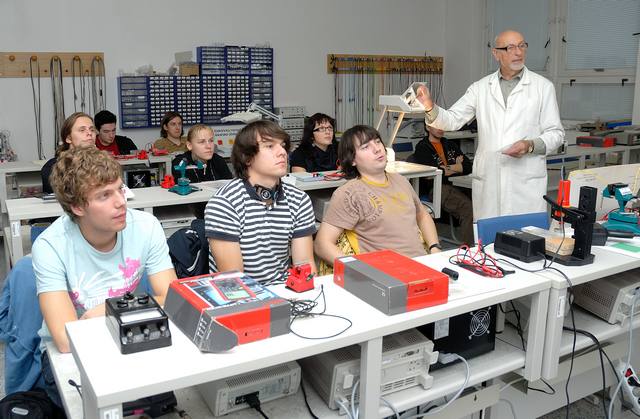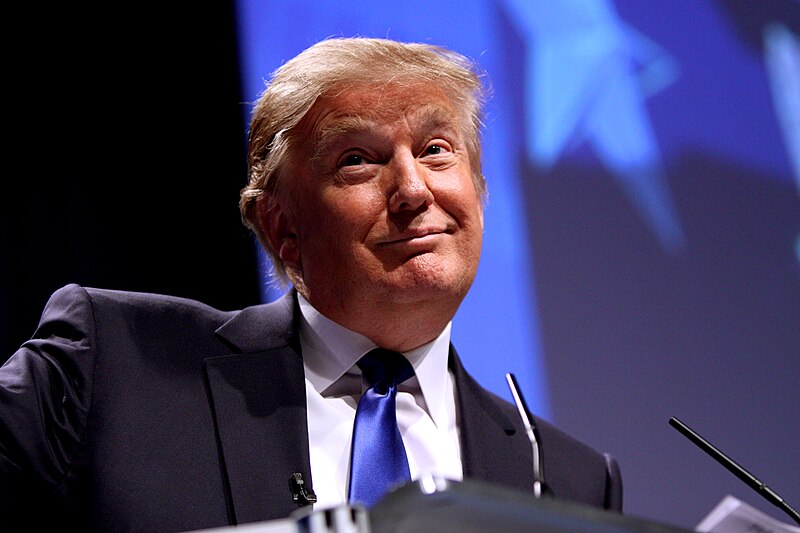Landschlacht, Switzerland, 25 October 2016
Watching the present American elections feels akin to watching a drunk publicly soil himself – you want to look away but the drunk is so loud and obvious and different from your common experience that you can´t keep yourself from staring.

There is so much that feels repugnant and offputting about the present struggle between Secretary of State Hillary Clinton and real estate mogul Donald Trump, a battle between a bully no one loves (Trump) and a career politician one is not sure can be trusted (Clinton).
My intention today is not to rehash what countless numbers of journalists and pundits have said about the candidates.
Nor do I intend to persuade or dissuade anyone reading this post to vote for one candidate or the other should you be eligible to do so.
Rather I want to look at the candidates in regards to a theme that is close to my heart: education.
If the candidates have defineable points on this issue they seem to be the following:
Trump believes that the federal government shouldn´t make a profit from student loans; schools should compete for parents´ favour; and the reduction or elimination of Common Core (the federal government determines what students should know at the end of their school year) and the Department of Education (leaving parents to decide what is best learned by their children).

Secretary Clinton believes that the Bible should be taught as history and literature not as science or religion; schools should be more involved in the community; parents are a child´s first teachers; and consensus has still not been reached on educational reform.

Bernie Sanders, though no longer a candidate for President, still registers noteworthy opinions: All public colleges and universities should be tuition free; Americans need high-quality, affordable early childhood education; colleges and universities should hire more faculty; students should not have to reapply for financial aid every year; kindergarten to Grade 12 education should be overhauled; colleges and universities should expand work-study programs to include all interested students.

So, let´s look at these ideas…
The United States of America is a huge land, both in terms of geography and population, thus making economic decisions quite challenging for any administration, federal or otherwise.

Banks are in the business of making a profit and loans are made in the interest from these loans.

So Sanders´ idea of tuition free public colleges and universities probably doesn´t sit well with America´s financial institutions who increase their profits through the issuing and eventual repayment, with interest, student loans.
To afford my own post-secondary studies in Canada, I attended college in the daytime and worked nights, with an average of about 4 hours of sleep per weekday.

And, least we forget in our rose-tinted idealism, educational institutes are businesses, for without money facilities cannot be offered nor teachers and administrators paid, so for many schools the priority is less the provision of quality education as it is the assurance of profit.
This skewed set of priorities is often abundantly clear with private institutions, who offer the gullible student a quality education which doesn´t seem to materialise after the non-refundable fees have been paid.
I have personally witnessed this phenomenon over the past two decades in my profession as an English-as-a-Second-Language teacher in Europe and Asia.
On three separate occasions I have been asked whether I would be interested in buying a school.
I declined, citing both a lack of investment capital and a lack of business savvy.
Just in the past six years I have been witness to the demise of three private Swiss schools, whose biggest failing was not in the quality of education offered, but rather in the insuffiency of their marketing of their schools.

But by the same token I have noticed that often the best advertised schools have offered inferior education, which has resulted in a resume that is spotted with short term teaching contracts that ended because the schools and I differed in the priority that education should take.
I find that when schools must agonise between the harsh reality of economic survival versus the ideal of providing a quality education, it is usually the ideal that dies.

Though there is a danger that government could influence society by using education to indoctrinate students into accepting the status quo (especially if the status quo favours the government), a school that needs not fret about paying its teachers is an institution that can focus on offering the best education it can provide.
If a government is responsible and concerned about the betterment of its citizenry, education should be a priority, not an afterthought.
And though a group of well-educated, intelligent free thinkers could challenge the status quo, this is still superior to having a citizenry making impulsive decisions motivated by fear and ignorance.
This, of course, leads us to ponder the question of what constitutes a good education.

Above: Plato´s Academe
Here in the West, (especially in the German-speaking part of Switzerland, where I reside) there is a tendency to view education only for its potential monetary benefits.
A society needs an educated populace for the proper working of our political institutions, for the efficiency of our industries and businesses, for the salvation of our economy, for the vitality of our culture and for the ultimate good of our citizens as individuals.
But if education is appreciated solely for those destined for toil, for those destined for economic and political leadership, while those education failed to motivate are denied a quality of life to which all should have access, thus our educational systems have failed us.
When the acquisition of organised knowledge by means of didactic instruction – lectures and responses and textbooks – only teach us what we need to accomplish tasks in a job…
… And minimize the development of a person´s intellectual skills (the ability to learn independently, the ability to think rather than simply react, the ability to actively read, conscientiously write, confidently speak with informed authority, consciously listen to understand rather than simply waiting for the chance to respond, the ability to calculate, to solve problems, to observe intelligently, to measure, to estimate, to exercise critical judgement)…
…Or a person´s enlarged understanding of ideas and values (the ability to question one´s society and to actively and morally participate in the society´s betterment, to be involved in artistic activities for art´s sake rather than simply fame or fortune), then our educational systems have failed us.
Offering the public an education is neither a responsibility to be taken lightly nor a burden to be carried easily.
For me, the hallmark of a great political leader is his/her realization of the importance of educating the society and his/her ability to find a practical balance between making schools self-sustaining institutions and providing quality education that can nurture and develop a nation.
Frankly, when I examine the loudest three candidates in this 2016 US election I am hard-pressed to find an ideal candidate when it comes to the topic of education.
Secretary Clinton strikes me as a person who seems more interested in maintaining the status quo, despite its weaknesses, rather than an advocate for any substantial change.
Bernie Sanders, of the three, has the better ideas…theoretically, but educating a nation so populous as America requires a strong economic adjustment of ideas that America seems reluctant to try.
As for Donald Trump…

Trump went beyond real estate to put his name on a remarkable variety of products and services.
Michael Sexton created a business plan for a real estate training program and presented it to Donald Trump, looking to pay Trump a flat fee for the use of his name.
Trump instead decided he wanted to be the principal owner.
Trump University was incorporated in 2004 by Trump, Sexton and Jonathan Spitalny, as a New York State limited liability company.
Donald Trump owned 93% of the company.
On 23 May 2005, Trump University launched its education program.
At the opening presentation, Trump said:
“If I had a choice of making lots of money or imparting lots of knowledge, I think I´d be happy to impart knowledge as to make money.”
This is a sentiment shared by many a teacher.
Trump University promised that it would “deliver the experience, knowledge and wisdom of Donald Trump himself.”

The company´s original business plan focused on online education, where students paid for access to a website where they could see videos and read articles about salesmanship, real estate, asset management, wealth preservation, creative financing, entrepreneurship and wealth creation.
The focus of the instruction was real estate investing, with Trump claiming in advertisements:
“I can turn anyone into a successful real estate investor, including you.”
Typically, the instruction began with an introductory seminar in rented space, such as a hotel ballroom.
At the introductory seminar, students were urged to sign up for additional classes, ranging from $1,495 seminars to a $35,000 “Gold Elite” program.
In 2005, the New York State Department of Education sent Trump, Sexton and Trump University a letter saying that they were violating state law by using the word “university” when in fact Trump University was not actually chartered as one and did not have the required license to offer live instruction or training.
Above: New York State Department of Education building, Albany, NY
Although Trump generally didn´t appear at classes in person, his face was on the cover of the book called Trump 101, that was handed out as a primary text for students.
Trump´s name was on every piece of paper and the classroom decorated with a life-size cardboard cutout of Trump dressed in one of his fine suits.
Trump University received little press coverage in its early days.
In 2008 the Tampa Bay Times reported on Trump University instructor James Harris and his free presentation.

The event was preceded by advertisements trumpeting “unheard real estate market factors have created a perfect storm of profit opportunity”.
In the ballroom of a Marriott hotel Harris offered personal testimony of how real estate transformed him from a teen who slept on the New York City subways into a successful man.
Despite the exciting prospect of a perfect storm, Harris advised his students to buy low and sell high and to content themselves with modest gains.
At the end of his talk Harris noted that he could only share so much information in a single session and then explained that Trump University was offering far more at an upcoming three-day seminar that cost $1,495.
Harris told the students:
“There are three groups of students: people who make things happen, people who wait for things to happen, and people who wonder what happened.
Which one are you?
There are gonna-bes and wanna-bes, and I want to talk to the gonna-bes when we´re done.”
In March 2010, the New York State Deputy Commissioner for Higher Education, Joseph Frey, wrote Trump:
“Use of the word university by your corporation is misleading and violates New York education law and the rules of the Board of Regents.”
Under pressure from the State of New York, Trump University changed its name to the Trump Entrepreneur Initiative.

The New York Daily News reported that complaints were being voiced by Trump University students around the country.
Tarla Makaeff, who paid nearly $60,000 to Trump University in 2008, brought a class action lawsuit against Trump University on 30 April 2010, in US District Court for Southern California.
The suit, Makaeff vs Trump University LLC, sought refunds for Makaeff and other former clients of Trump University, as well as punitive damages for breach of contract, fraud, negligent misrepresentation and bad faith.
Attorneys General in six states reported that they had received complaints about the company.
Students were pressured to use all the credit available on their bank cards to buy Trump University courses.
Internships never materialised.
Promised connections to powerful contacts were never made.
On 26 May 2010, Trump University filed a counterclaim against Makaeff claiming she had made defamatory statements about Trump University, including many completely spurious accusations of actual crimes, that had caused Trump University losses of more than $1,000,000.
On 30 June 2010, Makaeff countered that Trump University´s defamation claim was a SLAPP (strategic lawsuit against public participation) suit as an attempt to intimidate her, and that because Trump University is a “public figure” the defamation claim required proof that Makaeff “acted with actual malice” when speaking and writing about Trump University.
On 17 April 2013, the 9th Circuit Court of Appeals, ruled that Trump University is a “limited purpose public figure”.
On 16 June 2013, US District Judge Gonzalo Curiel ruled in Makaeff´s favour and dismissed the defamation counterclaim.

During Trump´s primary campaign speeches, he repeatedly called Curiel a “hater” and described him as “Spanish” and “Mexican”.
Trump said that Curiel should recuse himself.
Trump´s references to Curiel´s ethnicity, as well as his comments that “someone ought to look into” the judge, alarmed legal experts who expressed concern about the effects of the comments on judicial independence.
Curiel´s only comment was to write in a procedural ruling that Trump has “placed the integrity of these court proceedings at issue”.
On 24 August 2013, the State of New York filed a $40,000,000 civil suit against Trump University alleging illegal business practices and false claims made by the company.
Among the number of deceptive practices were claims that prospective students would be taught by successful real estate “experts” who were “handpicked” by Donald Trump.
New York State Attorney General Eric Schneiderman alleged that none of the instructors had been handpicked and some were actually bankrupt real estate entrepreneurs.

In a press release Schneiderman said:
“Mr. Trump uses his celebrity status and personally appeared in commercials making false promises to convince people to spend tens of thousands of dollars they couldn´t afford for lessons they never got.”
Included in the court papers was a Trump University document…
According to Atlantic Monthly, the Texas staff playbook instructed them to observe those in attendance for changes in body language that might indicate that they were becoming receptive and to arm themselves with “objection rebuttals” for those who resisted a sales pitch.
The playbook advised Trump University staff to avoid reporters because they “are rarely on your side and they are not sympathetic”.
In court, Donald Trump and Trump University denied the allegations and mounted a vigourous defense.
In his public comments, Trump stressed the high number of participants…
(Records indicate 7,611 customers.)
…who said they had a good experience.
Trump said 98% fell into this category.
But according to some former students, Trump University employees pressured students to offer favourable reviews, told them they had to fill out forms in order to obtain graduation certificates and did not undertake procedures to ensure that surveys were filled out objectively.
Trump told the Daily News:
“There are plenty of people who went to Harvard and did very poorly, and there are plenty of people who went to Trump University and did very well.”
Trump responded to Schneiderman´s lawsuit by developing a website, www.98percentapproval.com, where Trump´s defence was made in documents and videos that stressed the high ratings students gave in the surveys, and depicting Schneiderman as a “dirty” political “hitman” with allegedly corrupt ties.
Trump also went on Fox News to call Schneiderman a “lightweight respected by nobody”, “a political hack looking to get publicity”.
Trump then suggested that Schneiderman had acted at the behest of President Barack Obama:
“I´m not a very paranoid person.
When he meets with the President and then files a suit, like, 24 hours later, I think:
Yes, I think I´ve been targeted.
And I think it´s a big problem and I think people ought to look into it.”
Trump filed a complaint alleging that Schneiderman´s investigation was accompanied by a campaign donation shakedown.
The complaint was investigated by a New York State ethics board and dismissed in August 2015.
Schneiderman described Trump University as a bait-and-switch scheme.
He accused Trump of misleading more than 5,000 people to pay up to $35,000 to learn his real estate investment techniques.
Hardworking people are testifying that their experience with Trump University left them feeling duped.
During the Republican presidential primaries, opponents of Trump used Trump University to discredit him.
On 3 March 2016, Mitt Romney said:

“Donald Trump is a phony, a fraud. His promises are as worthless as a degree from Trump University.”
Curiel has scheduled the Trump University trial for 28 November 2016, so the case could be decided after the presidential election but before a possible inauguration.

I will be watching.
People need education, because education not only leads to better financial prospects but ideally as well to an improvement of character.
I firmly believe that lifelong education, of one form or another, is truly beneficial to a person.
I object to this noteworthy desire for self improvement being used to rob folks of their hard-earned incomes and savings.
It is my hope that those Trump has fleeced will finally see justice done in their favour, for not only has he robbed folks of their money, he has taken from them their hopes and their trust.
And stealing hope and trust is the greatest crime of all.

Sources: Wikipedia; Michael D´Antonio, The Truth about Trump; Mortimer J. Adler, The Paideia Proposal: An Educational Manifesto
